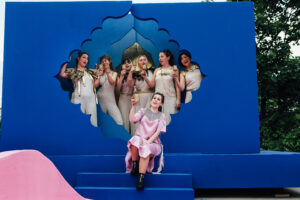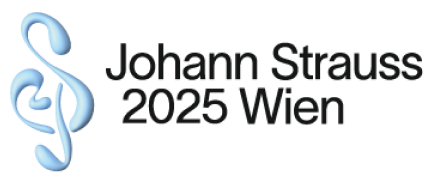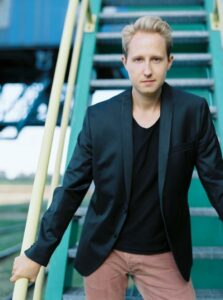
 CalendarProgramme
CalendarProgrammePodcast
DE
 CalendarProgramme
CalendarProgramme
Austrian baritone Wolfgang Resch began the 2024–25 season with a resounding success as Lui in Pascal Dusapin’s opera Passion at Neue Oper Wien. A review by Vienna’s classical radio praised: “Wolfgang Resch sings with a voice reminiscent of the young Neil Shicoff.”
In 2025, he made his first highly acclaimed foray into tenor repertoire, performing the role of Edwin in Kálmán’s Die Csárdásfürstin at the Classionata Festival in Solothurn. Returning to his great passion for art song, he performed Schubert’s Winterreise in Munich.
Future plans include the role of Ali Baba in a new version of Johann Strauss’ operetta Indigo, as part of the Johann Strauss Festival 2025 in Vienna, as well as Papageno at Theater Biel-Solothurn.
In the previous season, Resch impressed in Wim Henderickx’s opera The Convert – Beten zu wem? at Stadttheater Bielefeld, and as Dancaïro in Bizet’s Carmen at the Sommeroper Selzach in Switzerland under Kaspar Zehnder.
His versatility and wide-ranging repertoire – from baroque to contemporary music, from opera to operetta and Lieder – have long been evident. In recent years, he appeared as Orsanes in Reinhard Keiser’s Croesus in Paris, as Cindor in Rameau’s Zaïs at Theater Biel-Solothurn, and in Rameau’s Platée at Schloss Waldegg.
He has captivated audiences as a playful Papageno in Mozart’s The Magic Flute at venues such as Tiroler Landestheater Innsbruck, Theater Bern, Oper Burg Gars, and the Murten Classics Festival. Other roles have included Dandini (La Cenerentola), Harlekin (Ariadne auf Naxos), Silvano (Un ballo in maschera), Frédéric (Lakmé), Falke in Die Fledermaus, and Danilo in The Merry Widow, at numerous theaters and festivals.
He is deeply passionate about contemporary music. At Neue Oper Wien in Vienna and Budapest, he sang Sven Hedman and the Pastor in Johannes Kalitzke’s Kapitän Nemos Bibliothek, Bruno in Jörg Widmann’s Das Gesicht im Spiegel, Joe Pitt in Peter Eötvös’ Angels in America, and Victor in J.M. Staud’s Die Antilope. At Theater Biel-Solothurn, he performed as Eduard Rainer in the world premiere of Fabian Müller’s Eiger, and as Hans Scholl (Weiße Rose). At Bühnen Bern, he portrayed Piet in the world premiere of Leonard Evers’ Humanoid.
In the summer of 2014, Wolfgang Resch made his debut at the Salzburg Festival as part of the Young Singers Project, performing in the world premiere of Marc-André Dalbavie’s Charlotte Salomon, directed by Luc Bondy.
From 2013 to 2016, he was a member of the ensemble at Bühnen Bern.
Resch has also appeared in concerts and recitals alongside artists such as Sophie Rennert and Graham Johnson at the Lied Festival Zeist, the Ruhr Piano Festival, with the European Union Youth Orchestra in London, Liverpool, and Reykjavík, as well as in Grafenegg and the Vienna Musikverein.
Wolfgang Resch received his first vocal training as a boy soloist with the Wiltener Sängerknaben in Innsbruck. He later studied with Karlheinz Hanser, Ralf Döring, and Charles Spencer, and took masterclasses with Brigitte Fassbaender, Christa Ludwig, Thomas Hampson, and Helmut Deutsch.
Austrian baritone Wolfgang Resch began the 2024–25 season with a resounding success as Lui in Pascal Dusapin’s opera Passion at Neue Oper Wien. A review by Vienna’s classical radio praised: “Wolfgang Resch sings with a voice reminiscent of the young Neil Shicoff.”
In 2025, he made his first highly acclaimed foray into tenor repertoire, performing the role of Edwin in Kálmán’s Die Csárdásfürstin at the Classionata Festival in Solothurn. Returning to his great passion for art song, he performed Schubert’s Winterreise in Munich.
Future plans include the role of Ali Baba in a new version of Johann Strauss’ operetta Indigo, as part of the Johann Strauss Festival 2025 in Vienna, as well as Papageno at Theater Biel-Solothurn.
In the previous season, Resch impressed in Wim Henderickx’s opera The Convert – Beten zu wem? at Stadttheater Bielefeld, and as Dancaïro in Bizet’s Carmen at the Sommeroper Selzach in Switzerland under Kaspar Zehnder.
His versatility and wide-ranging repertoire – from baroque to contemporary music, from opera to operetta and Lieder – have long been evident. In recent years, he appeared as Orsanes in Reinhard Keiser’s Croesus in Paris, as Cindor in Rameau’s Zaïs at Theater Biel-Solothurn, and in Rameau’s Platée at Schloss Waldegg.
He has captivated audiences as a playful Papageno in Mozart’s The Magic Flute at venues such as Tiroler Landestheater Innsbruck, Theater Bern, Oper Burg Gars, and the Murten Classics Festival. Other roles have included Dandini (La Cenerentola), Harlekin (Ariadne auf Naxos), Silvano (Un ballo in maschera), Frédéric (Lakmé), Falke in Die Fledermaus, and Danilo in The Merry Widow, at numerous theaters and festivals.
He is deeply passionate about contemporary music. At Neue Oper Wien in Vienna and Budapest, he sang Sven Hedman and the Pastor in Johannes Kalitzke’s Kapitän Nemos Bibliothek, Bruno in Jörg Widmann’s Das Gesicht im Spiegel, Joe Pitt in Peter Eötvös’ Angels in America, and Victor in J.M. Staud’s Die Antilope. At Theater Biel-Solothurn, he performed as Eduard Rainer in the world premiere of Fabian Müller’s Eiger, and as Hans Scholl (Weiße Rose). At Bühnen Bern, he portrayed Piet in the world premiere of Leonard Evers’ Humanoid.
In the summer of 2014, Wolfgang Resch made his debut at the Salzburg Festival as part of the Young Singers Project, performing in the world premiere of Marc-André Dalbavie’s Charlotte Salomon, directed by Luc Bondy.
From 2013 to 2016, he was a member of the ensemble at Bühnen Bern.
Resch has also appeared in concerts and recitals alongside artists such as Sophie Rennert and Graham Johnson at the Lied Festival Zeist, the Ruhr Piano Festival, with the European Union Youth Orchestra in London, Liverpool, and Reykjavík, as well as in Grafenegg and the Vienna Musikverein.
Wolfgang Resch received his first vocal training as a boy soloist with the Wiltener Sängerknaben in Innsbruck. He later studied with Karlheinz Hanser, Ralf Döring, and Charles Spencer, and took masterclasses with Brigitte Fassbaender, Christa Ludwig, Thomas Hampson, and Helmut Deutsch.